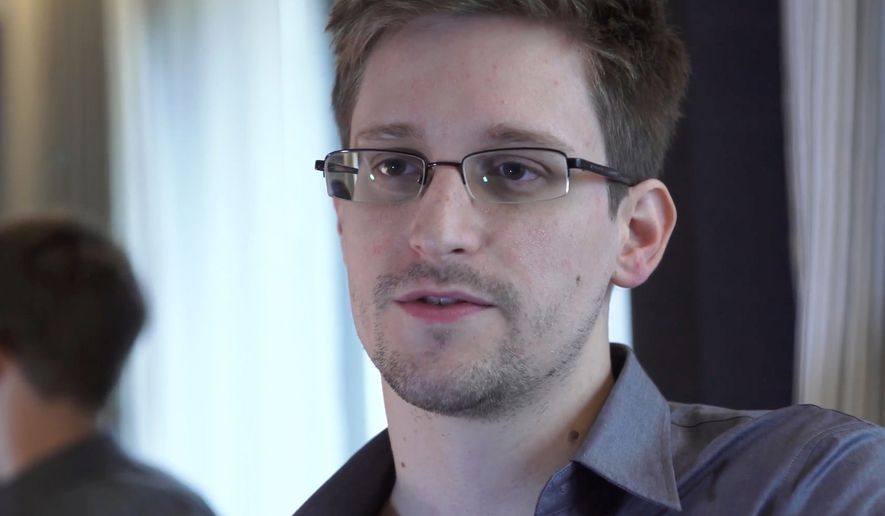Former NSA contractor Edward Snowden, who revealed the agency’s phone snooping program in 2013, says the end of the mass surveillance of phone calls under the Patriot Act is “a historic victory for the rights of every citizen.”
“In a single month, the N.S.A.’s invasive call-tracking program was declared unlawful by the courts and disowned by Congress,” Mr. Snowden wrote in an opinion piece for The New York Times. “After a White House-appointed oversight board investigation found that this program had not stopped a single terrorist attack, even the president who once defended its propriety and criticized its disclosure has now ordered it terminated.”
Earlier this week, the U.S. Senate passed and President Obama signed into law the USA Freedom Act, which imposes restrictions on the government’s access to records and has phone companies store the information rather than the government.
Mr. Snowden’s name has surfaced on the 2016 presidential campaign trail in light of the debate over the NSA program, with proponents of the agency’s surveillance techniques such as New Jersey Gov. Chris Christie, a potential candidate, labeling him a “criminal” who is “hiding in Russia.”
Former Rhode Island Gov. and Sen. Lincoln Chafee, the latest entrant into the 2016 race on the Democratic side, meanwhile, has said Mr. Snowden, who faces Espionage Act charges, should be brought back to the United States.
Mr. Snowden went on to say in the op-ed that the right to privacy still remains under threat.
“Some of the world’s most popular online services have been enlisted as partners in the N.S.A.’s mass surveillance programs, and technology companies are being pressured by governments around the world to work against their customers rather than for them,” he wrote. “Billions of cellphone location records are still being intercepted without regard for the guilt or innocence of those affected.”
“We have learned that our government intentionally weakens the fundamental security of the Internet with ’back doors’ that transform private lives into open books,” he continued. “Metadata revealing the personal associations and interests of ordinary Internet users is still being intercepted and monitored on a scale unprecedented in history: As you read this online, the United States government makes a note.”
He went on to say that at the turn of the millennium, few imagined that citizens of developed democracies would soon be required “to defend the concept of an open society against their own leaders.”
“Yet the balance of power is beginning to shift,” he wrote. “We are witnessing the emergence of a post-terror generation, one that rejects a worldview defined by a singular tragedy. For the first time since the attacks of Sept. 11, 2001, we see the outline of a politics that turns away from reaction and fear in favor of resilience and reason. With each court victory, with every change in the law, we demonstrate facts are more convincing than fear. As a society, we rediscover that the value of a right is not in what it hides, but in what it protects.”
• David Sherfinski can be reached at dsherfinski@washingtontimes.com.




Please read our comment policy before commenting.